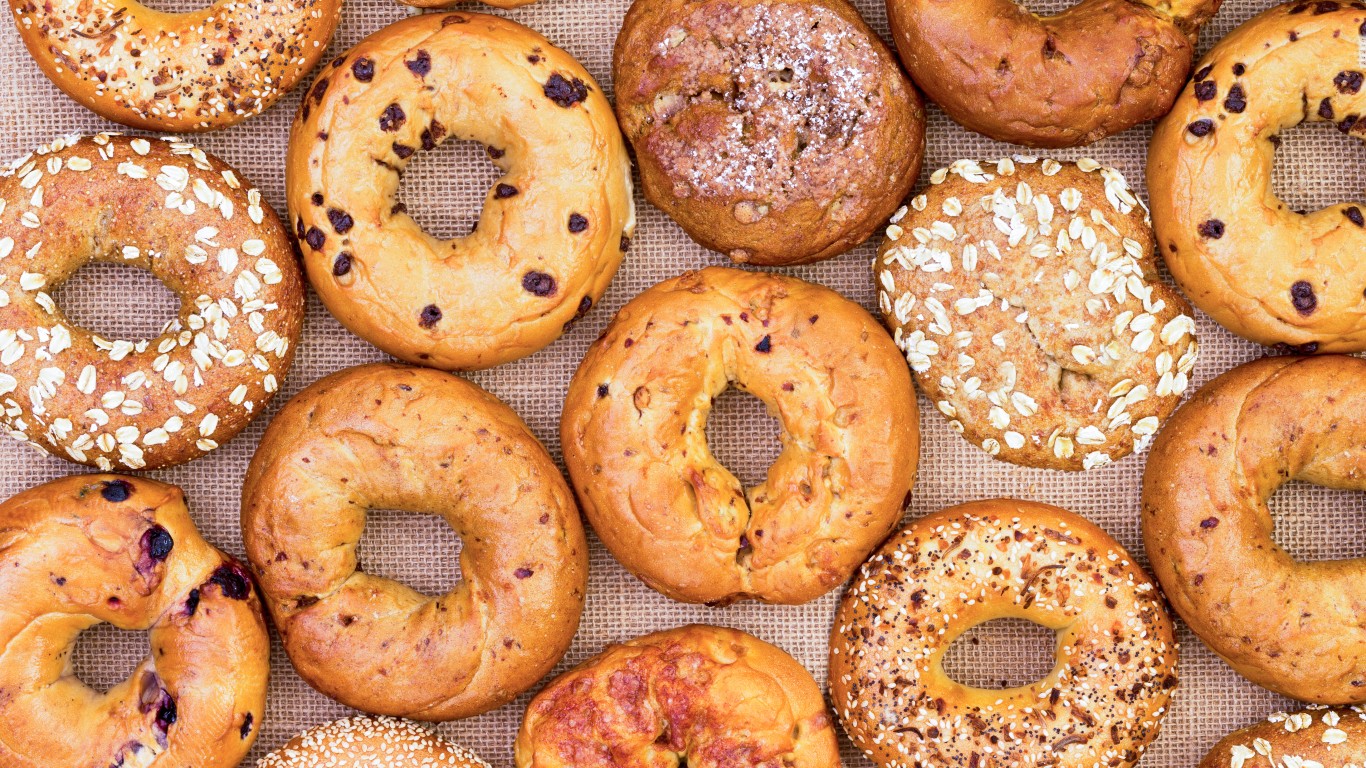
Peter the Great is known best as a trailblazer who modernized Russia, but he got his start traveling undercover through Europe and stealing its ideas. The tzar would industrialize his country’s military, revise its calendar – and shave its men.
After all, how could his countrymen compete with Europe while sporting whiskers? He figured they needed to look more like their clean-shaven European counterparts. But eventually Peter I realized that policing their beards wasn’t the best use of his power. Instead, he could charge them for the privilege of having facial hair. And so in 1696, Peter I’s so-called beard tax became a law.
We all know the old quote about the inevitability of death and taxes. And apparently weird taxes are also a certainty in life. Until 1998, for instance, Germany actually granted tax deductions for bribes and kickbacks, treating them as legitimate business expenditures.
That’s no longer the case, but meanwhile, other bewildering tax laws have stayed on the books. And governments keep coming up with new ones. (Read about the states where people are paying the most taxes).
Click here to see the 24 weirdest tax laws in the U.S. and around the world
24/7 Tempo has compiled a list of the 25 most unusual taxes and tax exemptions across the globe, using various departments of revenue, the World Health Organization, and the British Film Commission, as well as archived news articles about changes in tax laws.

TV tax
> Country: United Kingdom
If you own a TV in the U.K. – or even use your computer to watch broadcast shows over the internet – it’ll cost you. Every household that watches the box is required to pay a yearly fee – currently £159 (about $175) for a color set and £53.50 (about $59) for black-and-white, if such a thing still exists. Not paying the fee is considered tax evasion, and many thousands of people are fined or otherwise prosecuted for the offense each year. And the U.K. isn’t alone. About 30 other nations around the world charge for the privilege of watching TV, while another 25 or so have ended the practice – most recently France, in July of this year.
[in-text-ad]

Tattoo tax
> Country: United States (Arkansas)
If you live in Arkansas and you’re thinking of getting inked, make sure that’s one great tattoo. Since 2005, Arkansas has imposed a “tattoo tax,” charging its residents a 6% levy on not only tattoos, but also on body piercing services and electrolysis.
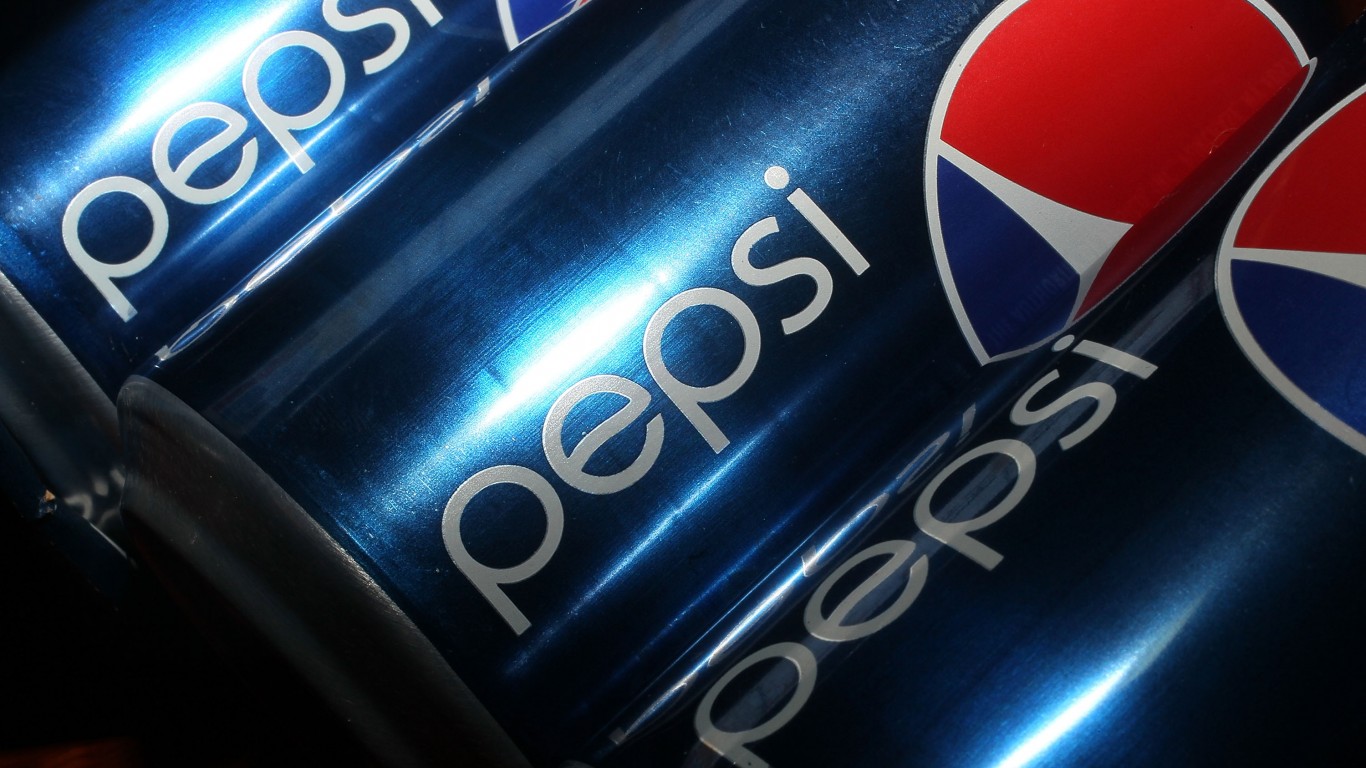
Sugary drinks tax
> Country: Mexico
In 2014, Mexico started taxing sugary drinks, increasing the price by one peso (half a cent) per liter. The country hoped the tax hike would encourage citizens to put down the soda cans, curbing the rising obesity and diabetes rates. Sure enough, three years after the tax went into effect, BMJ Today published a study showing it had reduced soft drink consumption.
Chopsticks tax
> Country: China
The Chinese are said to use more than 80 billion pairs of disposable wooden chopsticks a year, at a cost to the country’s forests of about 20 million mature trees annually â representing as much as 100 acres a day of aspen and birch (bamboo is also used). In 2006, in an effort to slow deforestation, the government imposed a 5% excise tax on wooden chopsticks. The levy seems to have made little or no difference in the use of these eat-and-toss utensils, however.
[in-text-ad-2]

Robot tax incentive
> Country: South Korea
In 2017, South Korea became the first country to adopt the controversial Robot Tax, designed to keep jobs safely in the hands of humans. The legislation doesn’t mean an increased tax on robotic machinery or robot parts. – just that companies investing in automation see their taxes increase as breaks are slashed.

Pole tax
> Country: United States (Texas)
Texas courts have continued to uphold the state’s “pole tax” (not to be confused with a poll tax, formerly charged to voters for the privilege of casting their ballor), officially known as the Sexually Oriented Business Fee, despite appeals from businesses. This means customers have to shell out a $5 fee at commercial venues serving alcohol while providing live entertainment by two or more individuals. Texas first levied the tax in 2007 to fund programs assisting sexual assault victims.
[in-text-ad]
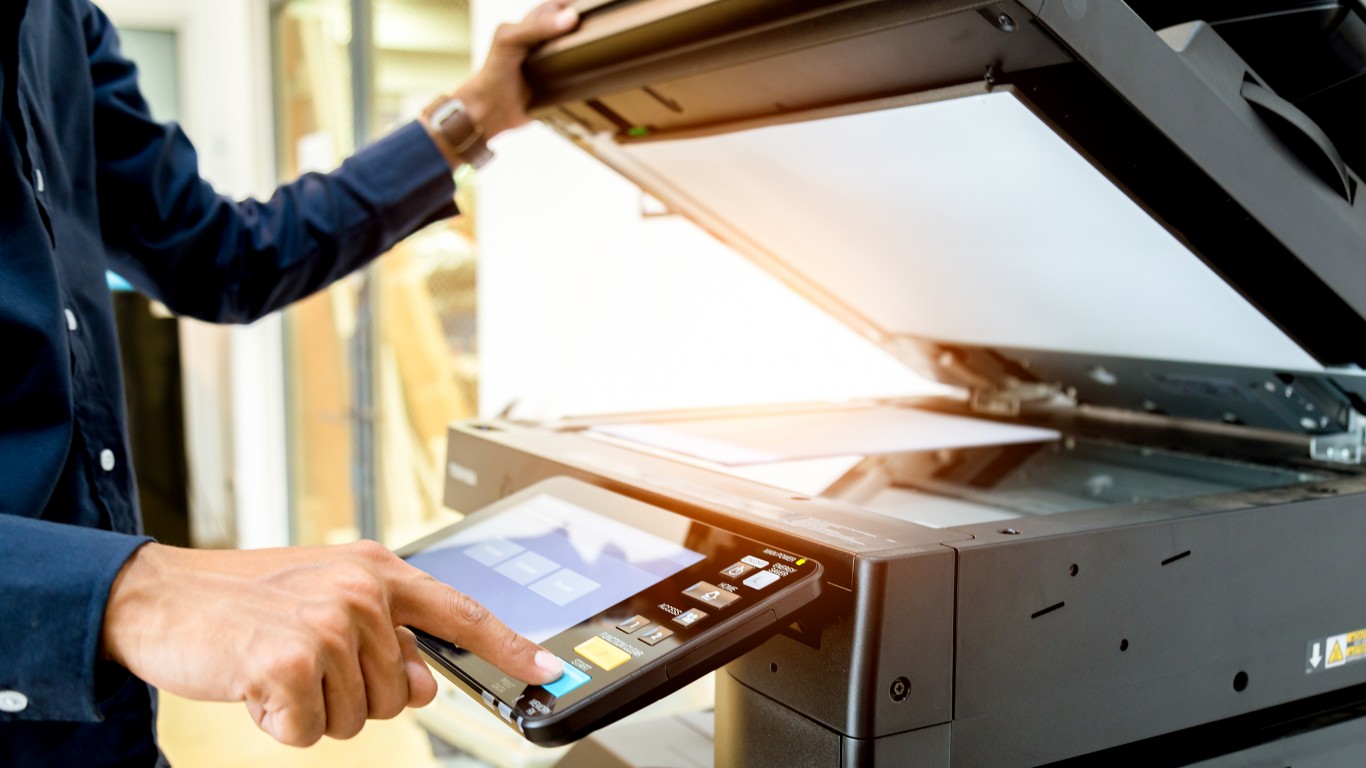
Photocopier tax
> Country: France
You can buy a photocopier or printer in France, but you’re going to pay for it. An extra 3.25% on sales is levied on copy machines whether made in the country or imported. The funds raised go directly to the French National Book fund.

Junk food tax
> Country: Hungary
Countries across the globe have tried to rein in unhealthy eating habits with junk food taxes. Some were more successful than others, but it’s definitely working for Hungary. The country introduced the levy in 2011, taxing prepackaged foods containing high fat, salt, and sugar content. An assessment from the National Institute for Food and Nutrition Science conducted in 2014 showed up to 73% of customers had traded the potato chips for fruits and veggies.

Tax on illegal income
> Country: United States
In the United States, it doesn’t matter if you made your money legally or illegally – the Federal income tax rules are the same. What’s stranger, even if you declare that the funds came from – say, embezzlement or bribes – the police won’t automatically show up at your door. The Fifth Amendment protects you from self-incrimination, so the IRS can’t immediately report you to the law. If you get audited, the situation might get hairy, but at least you’re square with the IRS.
[in-text-ad-2]

Hot air balloon tax
> Country: United States (Kansas)
If you want to take a hot air balloon ride in Kansas, make sure you’re actually going somewhere. The state charges an “amusement tax” if the balloon remains tethered to the ground. However, untethered hot air balloons are protected under the federal Anti-Head Tax Act, which says states and local jurisdictions can’t impose fees and charges on airlines and other airport users.

Google tax
> Country: France
France got tired of tech companies making money off of its consumers without paying taxes to the country, and in 2019, passed the “Google Tax” to collect its share of big technology firms’ revenues earned inside the country. This controversial legislation is designed to fix the loopholes in global tax rules, and it hit tech companies like Apple, Facebook, and Amazon especially hard.
[in-text-ad]

Goatee tax
> Country: US (Massachusetts)
You better have a license to sport that goatee. Seriously, this is a thing in Massachusetts. An old ordinance says men must pay a special license fee to make this facial hair fashion statement – shades of Peter I..
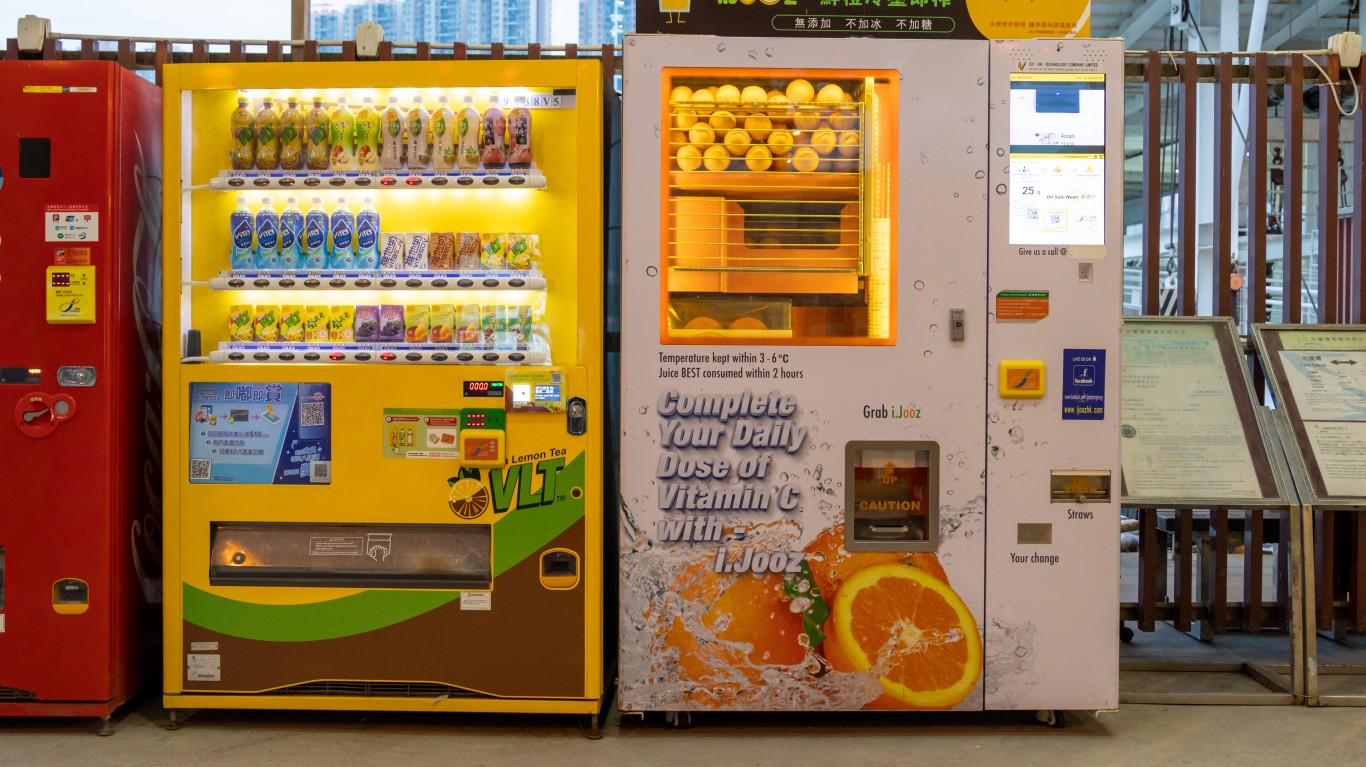
Fruit from vending machines tax
> Country: United States (California)
Fruit is tax-exempt in California – unless it comes out of a vending machine. Fruit, other cold products, and hot drinks from vending machines are considered “partially taxable,” with the state collecting 33% of the gross receipts from the sales.

Flush tax
> Country: United States (Maryland)
This sounds almost as bad as pay toilets. Maryland imposes a fee on residents to flush their toilets and use water in other ways by levying an annual fee of $60 per household on water and sewer bills. But the motives behind the tax are actually honorable. This tax went to effect in 2004 when Maryland introduced the Chesapeake Bay Restoration Act to benefit its sewage treatment plants, restoring the ecosystem.
[in-text-ad-2]

Fat tax
> Country: India
It sounds insulting, but India’s fat tax doesn’t mean a person will literally have to pay to be overweight. They do, however, need to pay extra for foods high in fat, sugar, and salt – an attempt to battle the country’s increasing obesity rates.
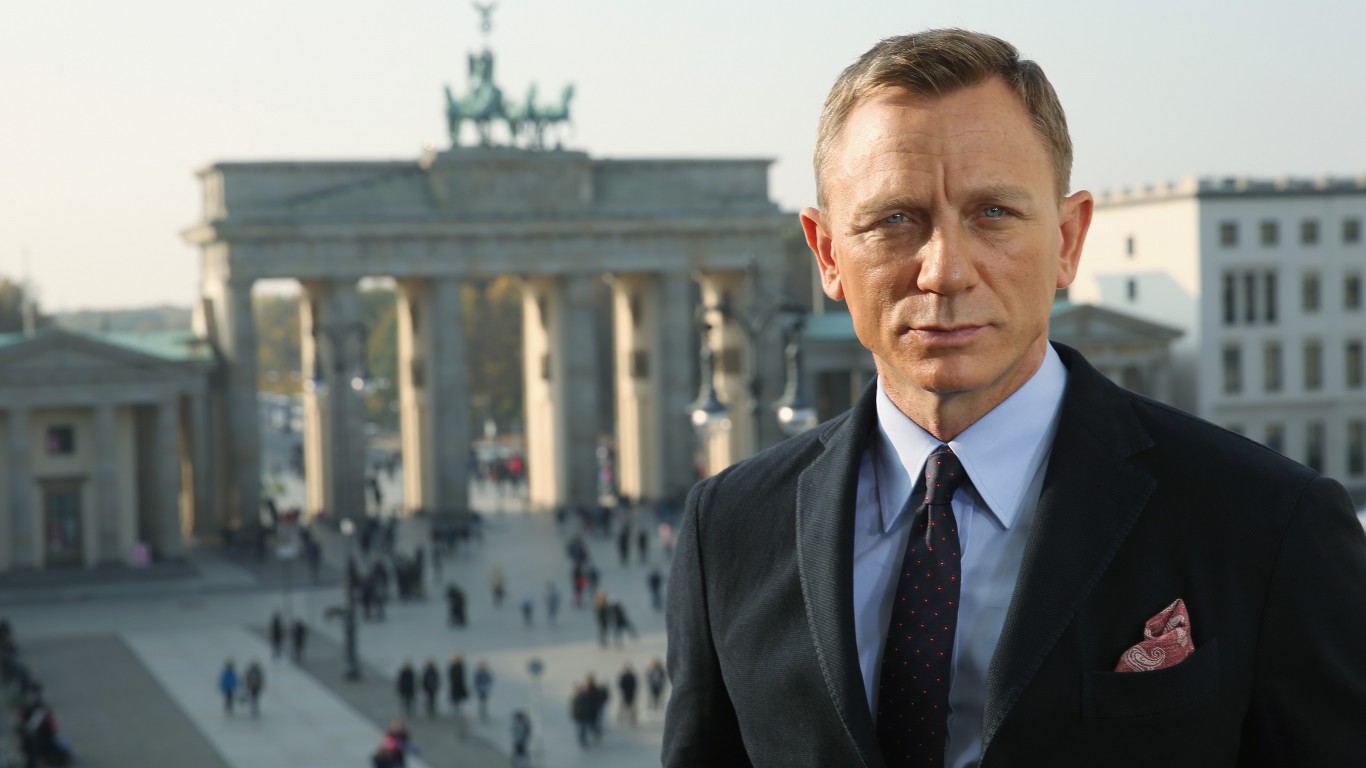
Culturally British tax exemption
> Country: Great Britain
British filmmakers can apply for tax relief by proving their works are, well, British enough. They have to pass a cultural test, overseen by the British Film Institute (working on behalf of the Department for Digital, Culture, Media and Sport). To qualify, all projects must pass a cultural test. For example, a British film or TV program must be set in the U.K., the lead actors need to be British citizens or residents, and the story has to demonstrate British creativity, heritage, or diversity.
[in-text-ad]

Cow flatulence tax
> Country: Denmark
Cow flatulence might be toxic, and we’re not talking about just the smell. Studies show bovine gas could be making up as much as 18% of Europe’s greenhouse gasses. Slaughterhouses are the worst offenders, due to the crowding of the cows. To knock the wind out of climate change, several European Union countries are now taxing each cow. Denmark has the distinction of imposing the highest rate – each cow costs farmers up to $110.

Church tax
> Country: Germany
It costs money to be religious in Germany, where churches can take taxes directly from their members’ salaries – 8% to 9% of their payroll tax each month. That’s how state-recognized religious congregations raise funds.
Cereal toy tax exemption
> Country: Canada
Was there a better feeling than finding that cool toy in your cereal box? Canadian cereal makers have an added incentive to bring smiles to the kids’ faces – they get a tax break for putting those toys in the boxes. It’s a win-win.
[in-text-ad-2]

Candy without flour tax
> Country: United States (Washington)
Not all candy is created equal in Washington state. Since June 2022, any candy made sans flour comes with a not-so-sweet sales tax. Meaning you’ll get hit with a tax for a Snickers, but not a Twix. Or a Reese’s Cup will cost you more than a Kit Kat. You get the idea. In other words, the addition of flour means candies like Kit Kats and Twix are considered real food now – as far as Washington state is concerned, anyway.
Belt buckles tax
> Country: United States (Texas)
Deep in the heart of Texas, clothes are tax-free. But according to the Pew Charitable Trust, belt buckles aren’t clothes – they’re accessories. Expect a 6.25% sales tax if you buy one of these shiny ornaments in the Lone Star State.
[in-text-ad]

Bagel tax
> Country: United States (New York)
You won’t get taxed for buying a bagel in New York – unless you want it sliced. Seriously, the entire state of New York charges an 8 cent tax on any altered bagel, be it cut in half, toasted, or schmeared. The logic behind this? A sliced bagel counts as a prepared food for supposed consumption on the premises, meaning more dough out of the customers’ pockets.

Baby name rule
> Country: Sweden
The Swedish tax agency does not find weird baby names amusing. Before a child turns five, parents have to have the name approved by the tax agency or incur its wrath – in the form of a fine up to about $770. The logic is, the tax agency is protecting a kid from being named something controversial or unpronounceable.

Artists tax exemption
> Country: Ireland
Artists of all kinds can potentially avoid income taxes in Ireland, so long as their books, plays, sculptures and paintings, or compositions are original and have cultural or artistic merit, according to the guidelines set forth by the Arts Council and by the Minister for Culture, Heritage and the Gaeltacht.
100 Million Americans Are Missing This Crucial Retirement Tool
The thought of burdening your family with a financial disaster is most Americans’ nightmare. However, recent studies show that over 100 million Americans still don’t have proper life insurance in the event they pass away.
Life insurance can bring peace of mind – ensuring your loved ones are safeguarded against unforeseen expenses and debts. With premiums often lower than expected and a variety of plans tailored to different life stages and health conditions, securing a policy is more accessible than ever.
A quick, no-obligation quote can provide valuable insight into what’s available and what might best suit your family’s needs. Life insurance is a simple step you can take today to help secure peace of mind for your loved ones tomorrow.
Click here to learn how to get a quote in just a few minutes.
Thank you for reading! Have some feedback for us?
Contact the 24/7 Wall St. editorial team.
 24/7 Wall St.
24/7 Wall St.
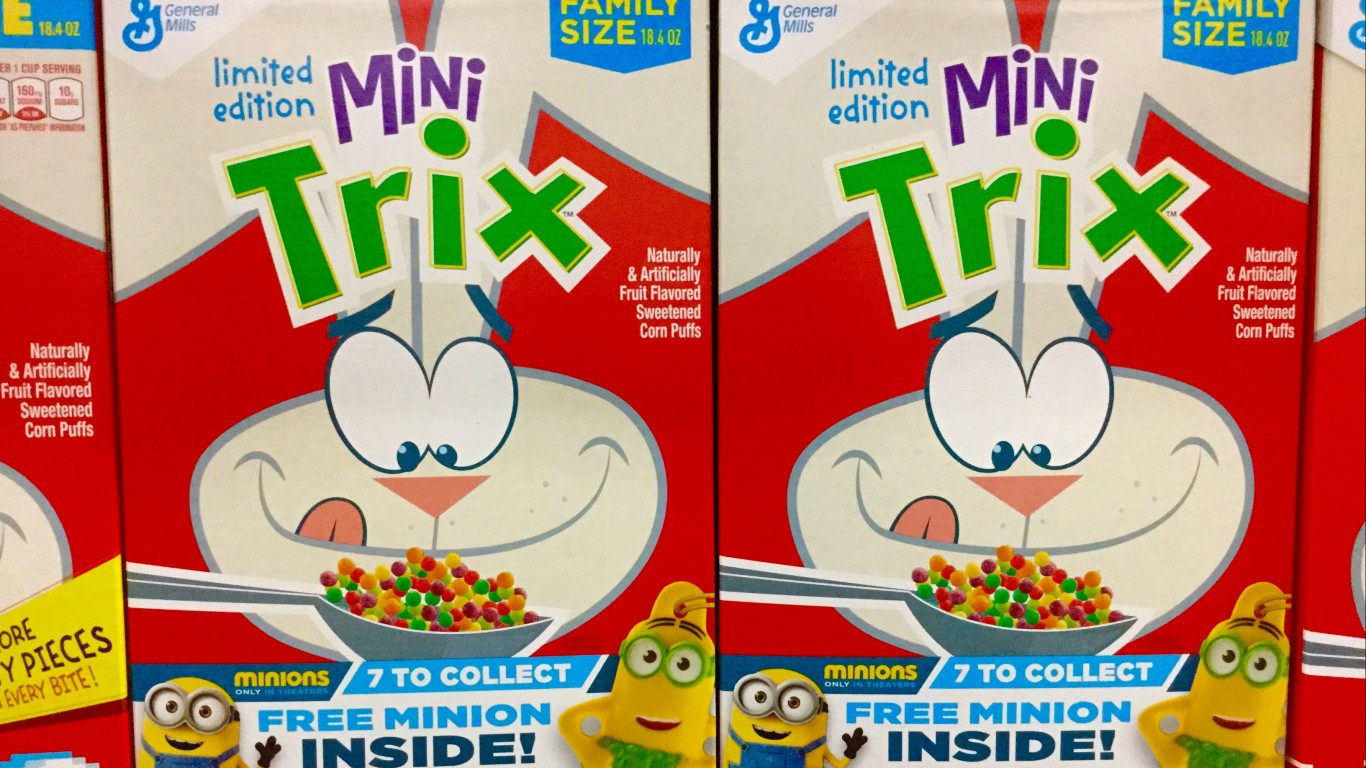

 24/7 Wall St.
24/7 Wall St.